
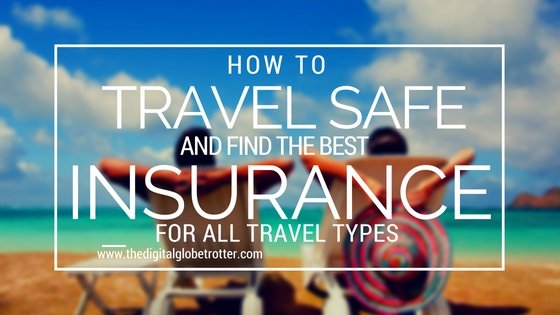
Travel Insurance is an essential and important part of travel expenses, yet some people will just ignore it thinking “problems only happen to others”. This couldn’t be further from the truth. Leaving on an international trip will require planning and traveling safely is crucial to keep a peace of mind in any event. I have always had travel insurance for pretty much 95% of all my 10+ years on the road, and do not regret it one minute! Most people are lost when dealing with insurance so I will clear things up in this article in details, covering essentially what you need to know to be prepared and see your options of insurance.
In This Article...
- 1 Why do I consider myself a good resource to talk about insurance?
- 2 What exactly is travel insurance?
- 3 Why exactly MUST you get yourself insurance?
- 4 My Personal experience.
- 5 How does the Excess (or Premium) work?
- 6 What to Look For in a Good Travel insurance
- 7 Adventure sports exceptions
- 8 Important note about pre-existing conditions
- 9 Getting Insurance before the trip
- 10 How to find Cheap travel insurance.
- 11 Where to get Good Travel insurance?
- 12 My personal Experience with Travel insurance
- 13 Get Coverage from your Credit Card
- 14 What if you are traveling indefinitely.
- 15 Covering Expensive Gear
- 16 Pin to Pinterest
- 17 Support Ian with a TIP or Donation
Why do I consider myself a good resource to talk about insurance?
Having been on the road for over 13 years now, and while visiting 188 out of the 196 countries of the world, I have had the time to understand how things work in the travel Insurance world. Scams, false claims, false publicity, and tiny fine prints, I have seen it all… I thoroughly researched the top companies out there and tested several of them over the years, throwing away thousands of dollars in insurance. Having known what I know now, I could have saved a lot of money wasted on bad companies and avoided many mistakes that I wouldn’t have encountered otherwise. So I feel like it’s my homework as a veteran traveler to keep others in the community informed and put on the right track straight away. Having been the guinea pig myself, you just need to follow along through this article to get all the details on what to do.
Pin it for Later
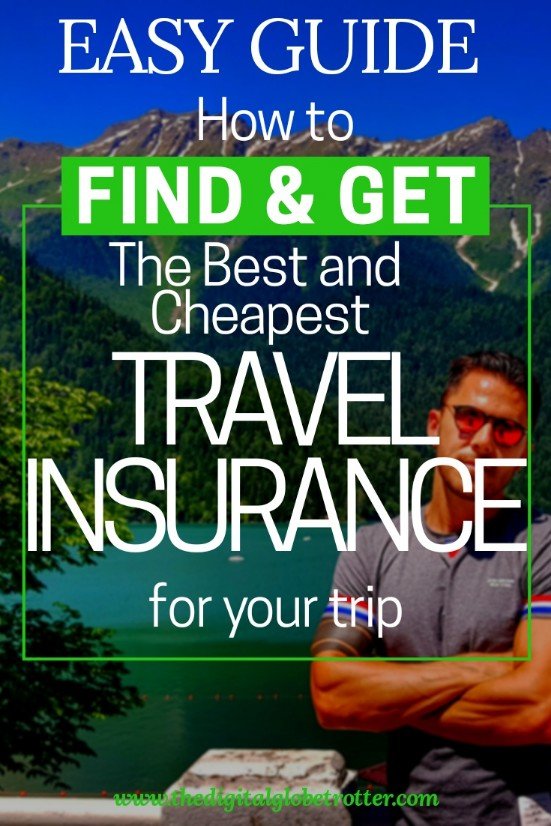
What exactly is travel insurance?
Travel insurance is coverage in the event of an emergency situation, should be related to Medical Emergencies but also towards theft of personal effects, trip cancellation, lost or damaged luggage by the airline. Some companies cover essentially only medical expenses and basic support, while others provide full coverage with first-class support in case of claims. It all depends on what your needs are and the amount of peace of mind you want to have for our trip. You may need single trip coverage or a full year plan for multi-trip. Or you may and insurance for a single person, or for a whole family. It’s important to do your research beforehand to find exactly what you need are beforehand.
Please note that travel insurance is not designed to replace your home country insurance. In fact, most insurance requires you to have a valid insurance in your home country of residence to purchase their insurance, and will clearly mention that the coverage is not valid in your country of residence. If you go with one of these insurances, you will need to verify that your home country stays valid for the extent of your trip.
Why exactly MUST you get yourself insurance?
In my all those years on the road, I obviously had to visit the doctor quite a few times. Even a life-threatening event in one occasion… When we are traveling we are increasingly exposed to dangers as we put ourselves out there in places that work differently than they do at home. For North Americans which are used to have everything around them secured in fear of lawsuits (such as “caution hot liquids” warnings on cups, or “watch out for wet floor” sings), in most countries danger is out there everywhere and accidents happen much faster. If you are not experienced to watch out for danger and be aware at all times, accidents will happen much more often.
For example, one thing that I see all the time are sewer holes wide open around sidewalks in many countries. I’ve met more than 3 people I can remember that have broken their leg while traveling by falling in those holes as in most countries, authorities don’t care about marking them. Back in Canada, there would be a whole blocked area and would be clearly marked signs everywhere. Yet this type of accident happens way too often by people not looking down as they are not used to this scenario. they just trust the environment around them to be secured, as it is at home. A broken leg in a foreign country can cost over 10000$.
I have seen way too many people getting injured on their trip and in the case of not being insured, I encountered people who had their trip and lives ruined by excessive hospital bills over 20000$. There is a case of a guy I met in Thailand which made a motorbike accident. Without insurance, and having to stay in hospitals for months, He ended up having to make a crowd-funded campaign on the internet to help cover his medical expenses.
My Personal experience.
I always took travel insurance very seriously and every time I wouldn’t be covered while traveling, I would feel nervous about taking risks and would lose this peace of mind that travel insurance provides. to me this is the most important factor, to feel I have support. I have had problems here and there, but My most serious accident has been when I had a beer bottle tracked open on my head in Portugal, which slashed my left temporal artery. Having lost so much blood, I had to get an ambulance rush me to emergency to get surgery to fix it up. This kind of intervention with ambulance, surgeons and cosmetic surgeons would have cost me over 30000$ having not been covered by insurance. That was quickly covered by my medical insurance without trouble and carefree, wired to my account. That would have put an end to my travels for some time, having to pay this debt.
I had other occasions in Ukraine where I had a tooth infection and needed to get an emergency root canal with a cosmetic rebuild of my tooth as a crown. That turned out a little expensive and my insurance painlessly paid for the whole bill after paying my excess. The feeling of not having to worry and being carefree for me is the most important factor that provides medical insurance. The whole process would have been hell if I was worrying all the time about the cost and choosing cheap materials to rebuild my tooth. Instead, I had a prime quality zirconia tooth crown made by a professional and paid by my insurance. Just Perfect!
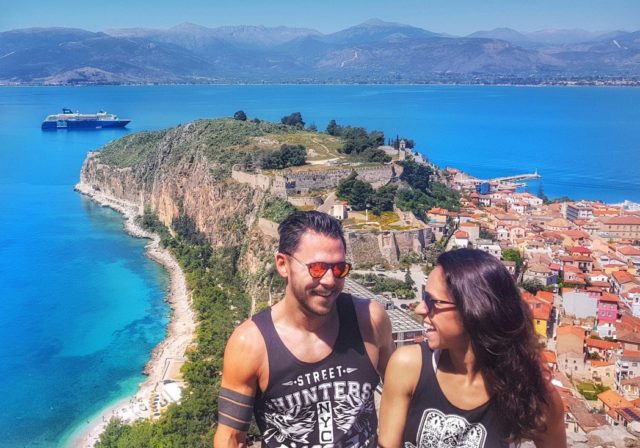
How does the Excess (or Premium) work?
The excess, which s also called premium, is basically the amount of money you need to pay as a minimum, in the event, you visit a doctor. For example, my current plan includes a 200$ excess. So If I go to the doctor and have a bill of 1000$, I will be refunded 600$ by the insurance company. The excess is designed to avoid abuses by some travelers who would just visit doctors all the time for a minimal problem, and also reduce the cost of some pans. You will also be able to purchase a full coverage with no excess but this is much more expensive. My personal recommendation is to take a coverage that has an excess of about 200 to 500$ because after all, travel insurance is made for emergencies and the reason I take insurance is to avoid a bad surprise in the case the bill goes over 10000$. So I can definitely reduce the risk by having a 400$ excess, which wouldn’t hurt in the case an expensive visit to the doctor happens.
What to Look For in a Good Travel insurance
This will definitely depend on where you intend to go, for how long and where is your country of residence. But the most important thing that is non-negotiable is to get coverage for emergency medical expenses and emergency medical evacuation and repatriation. For Emergency medical expenses, the coverage should be of at least half a million dollars and cover most basic medical illness and common accidents. Dental Coverage is a plus but also very useful as it is quite common (as I found out with my tooth infection needing a root canal in Ukraine), but not as expensive as surgeries, so it could be avoided.
The other important thing to look out for is to check which countries are covered. In general, the most dangerous countries which have travel advisories issued by governments will not be covered. These are generally war zones and countries that most travelers will not visit. But I’ve been to many of them so in some cases I had to go back to my policy terms and conditions to make sure I had coverage. Some “expensive first world countries” like the USA and Canada will in many cases not be covered. These countries usually require extra coverage which is usually a little more expensive.
You may also not be covered in your country of origin so if you intend to travel a lot in your country and your insurance is not covering other states/provinces, make sure you buy special coverage for this type of trip.
Other things to check out is 24-hour emergency assistance over the phone. Make sure you keep this number close in the event you need to rush to the hospital as some insurances need you to get acceptance by phone before medical procedures.
Adventure sports exceptions
Going paragliding on your next trip? Just know that 99.9% of insurance companies will not cover you in this case as accidents are way too common. same will apply for extreme sports and adventure sports that are rated at “high risk” by insurance companies. This will be stated in your policy it is worth planning ahead on what you plan to do. Some insurance companies provide easy add-ons for extreme sports so they can be added ahead of time if you decide to include them later.
Important note about pre-existing conditions
Make sure you never lie in the registration form about your pre-existing conditions. This will most probably nullify your insurance in case of an accident and will also blacklist you from buying future coverage. Make sure you read the terms and conditions about pre-existing conditions and if they are important, contact the policy by phone to be 100% sure how to approach them with your pre-existing conditions.
Getting Insurance before the trip
My advice is to make sure you have insurance as soon as you know the travel dates. This is important because most travel insurance requires you to have purchased your insurance before you leave. This has caused me problems in the past and I was left without options since my policy had expired and I couldn’t purchase another one on the road. However, some travel insurance will let you purchase your insurance while on the road after you have left home. But of course, this will not cover any theft or medical expenses which have occurred before your purchase.
How to find Cheap travel insurance.
As a multi-billion dollars market, travel insurance has more companies than you will ever need. And comparing them to each other is next to impossible. It will require you so much time you probably don’t even have. But I did my homework a couple times to compare many of them, and I have always converged to a few reputable companies that I have tried and tested. So follow along if you want to know which ones I trusted over the last 10 years of travel.
Where to get Good Travel insurance?
You can do it the old fashion way and get it through a travel agent, which are usually equipped with such company offers. But in my opinion, you will pay much more for this. The best option s to get it online. You don’t even need to contact anybody or call anybody. With a few minutes and a few clicks filling an online form, you will receive a quote about the prices offered to compare the different options for you.
for example, with an unnamed company, in Less than one minute, I made a quick test to get a quote on a one-week travel insurance for a 30 years old Canadian. I only needed to put in my travel destination, my dates, my country, and that’s it. They sent me my quote and policy inclusions on the next page.

This is the policy they propose for a one week trip. 35 Canadian dollars for one week is less than 30 USD, so definitely affordable for what they offer. They have also the explorer plan which is like their premium for less than 5$ more. They even include dental care and Adventure Sports in both plan
My personal Experience with Travel insurance
Generally speaking, travel insurance is one of the questions I receive a lot when asked about my techniques and strategies to travel long term. I have tried 4 companies through the years and my general rule is to direct people directly to their local approved insurance company. This is a proven company that has the best reputation in the market. They have also been recommended by lonely planet guides and their record is one of the cleanest and transparent in the market. Not once have I heard anybody having problems claiming to them.
Get Coverage from your Credit Card
It is useful to look at your credit card provider if they provide travel insurance. Some premium cards will provide a basic coverage for a small period of time, usually 2 to 3 weeks. However, if you decide to go with this option, make sure you read the fine prints as it is usually for basic things and many exclusion can arise. I instead disregard these insurance and go directly to travel insurance companies, which has the record to provide full assistance if anything happens. To me, it’s just not worth the hassle to rely on a basic credit card insurance.
Keep in mind that many will not provide repatriation and evacuation fees. And most importantly, you will most probably have to use the credit card to purchase the flight for your trip, so make sure you understand how it works.
What if you are traveling indefinitely.
Go for a policy that offers a 12 months coverage, AND that is extendible while abroad. As earlier stated, many insurances will not allow you to purchase a coverage after you left, so make sure it is an option.
Covering Expensive Gear
I have covered this in a previous post about how to choose gear and what to pack, but in general, if you travel with expensive gear like an expensive laptop, an expensive phone or an expensive camera with lenses, I recommend getting them insured. Theft is pretty common in some areas of the world and getting your money back after it gets stolen is pretty simple. They pretty much just ask you to provide proof of theft, like a police report, and the receipt of purchase, and you will receive the money back wired into your account while you are still on the road, to be able to buy a new item even before you come back home.
Pin to Pinterest
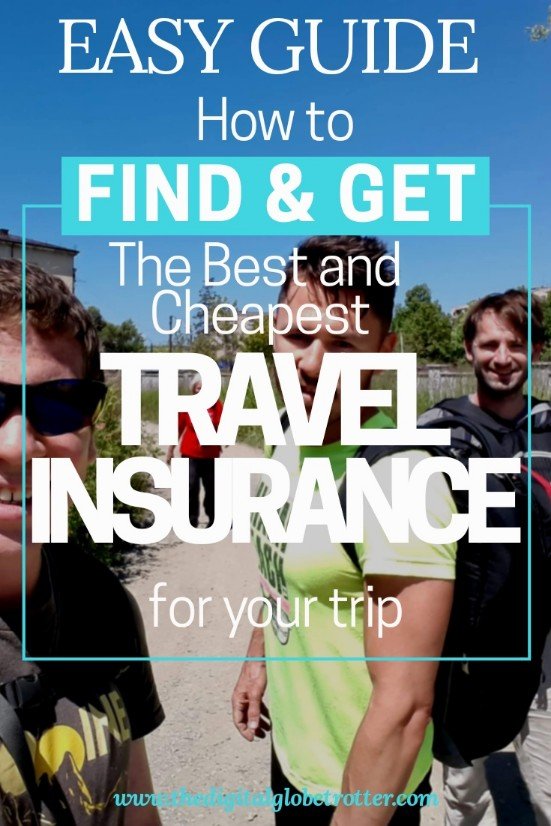
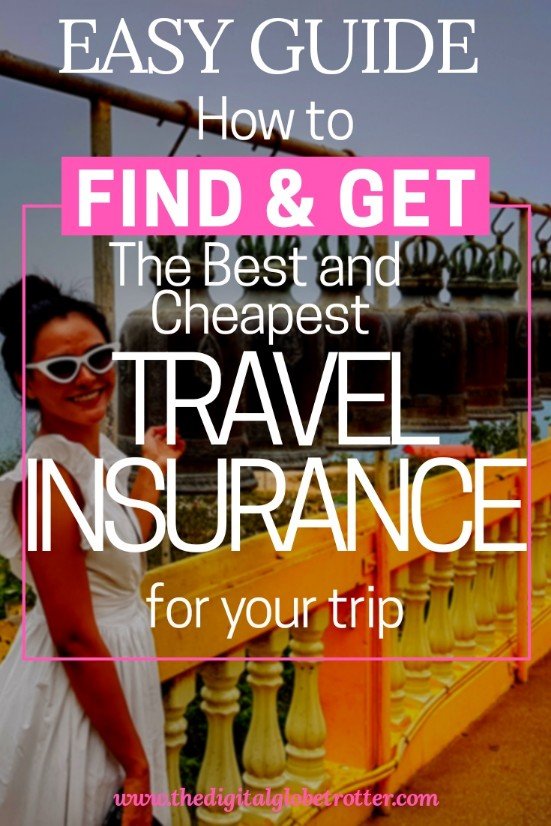
Support Ian with a TIP or Donation
Like what I do? Tips and donations like yours are what keeps this site alive. Its simple and quick, and makes a big difference.Offer me a Coffee !
Why not take 30 seconds to offer me a coffee and show your appreciation. A small gesture that goes a long way!Crypto Donations
BTC: bc1qwjy4s7t399jztr7ypnzlwlkd5d4wamnsz3582d
ETH: 0x4C1Ad7546f8a8e17FDD667f3fc837632Dff5bA85
LTC: ltc1qw2gfkuegaun8u5gzv0ua070n5pu3zak9je3tul



